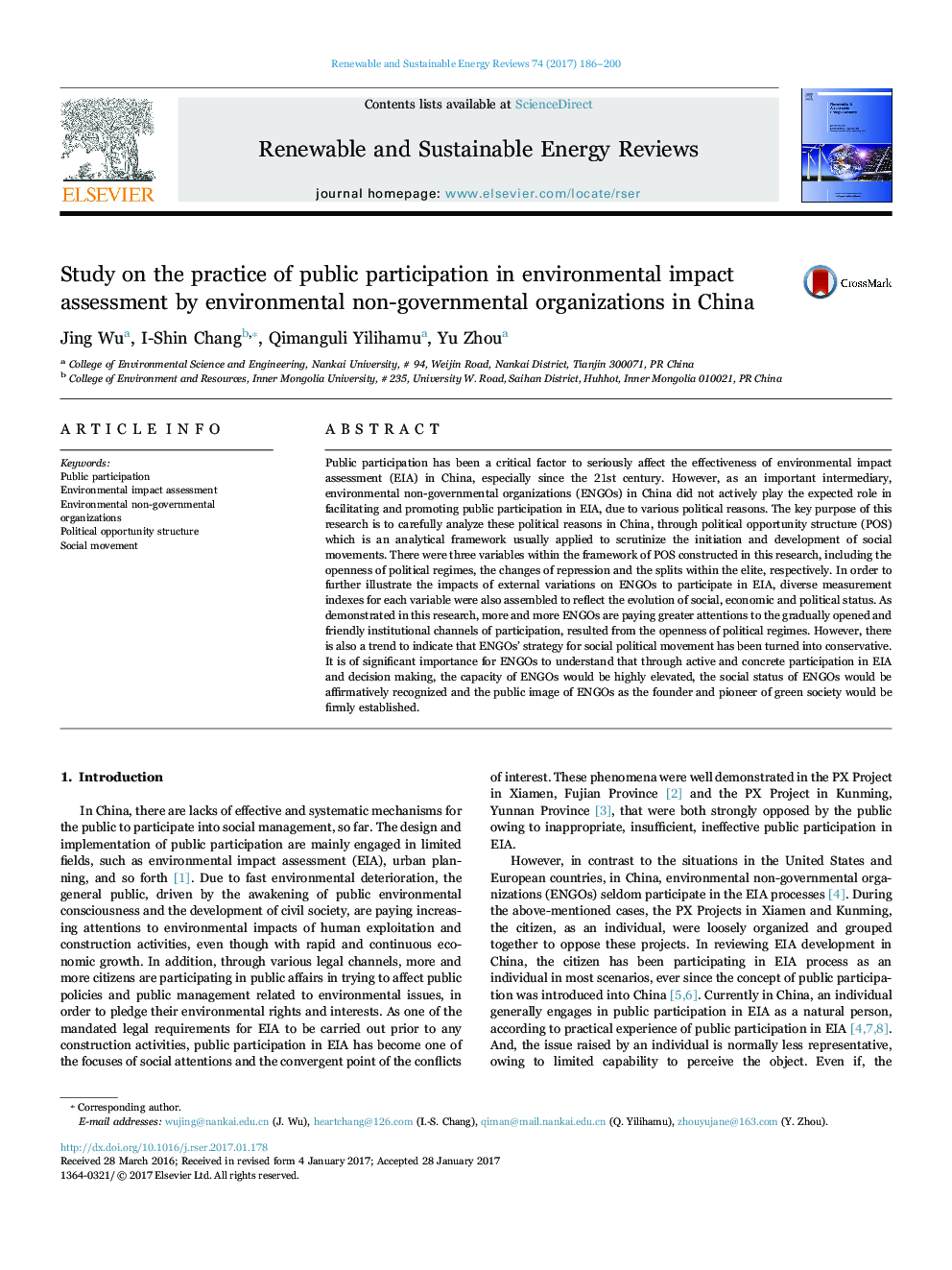| Article ID | Journal | Published Year | Pages | File Type |
|---|---|---|---|---|
| 5483117 | Renewable and Sustainable Energy Reviews | 2017 | 15 Pages |
Abstract
Public participation has been a critical factor to seriously affect the effectiveness of environmental impact assessment (EIA) in China, especially since the 21st century. However, as an important intermediary, environmental non-governmental organizations (ENGOs) in China did not actively play the expected role in facilitating and promoting public participation in EIA, due to various political reasons. The key purpose of this research is to carefully analyze these political reasons in China, through political opportunity structure (POS) which is an analytical framework usually applied to scrutinize the initiation and development of social movements. There were three variables within the framework of POS constructed in this research, including the openness of political regimes, the changes of repression and the splits within the elite, respectively. In order to further illustrate the impacts of external variations on ENGOs to participate in EIA, diverse measurement indexes for each variable were also assembled to reflect the evolution of social, economic and political status. As demonstrated in this research, more and more ENGOs are paying greater attentions to the gradually opened and friendly institutional channels of participation, resulted from the openness of political regimes. However, there is also a trend to indicate that ENGOs' strategy for social political movement has been turned into conservative. It is of significant importance for ENGOs to understand that through active and concrete participation in EIA and decision making, the capacity of ENGOs would be highly elevated, the social status of ENGOs would be affirmatively recognized and the public image of ENGOs as the founder and pioneer of green society would be firmly established.
Related Topics
Physical Sciences and Engineering
Energy
Renewable Energy, Sustainability and the Environment
Authors
Jing Wu, I-Shin Chang, Qimanguli Yilihamu, Yu Zhou,
